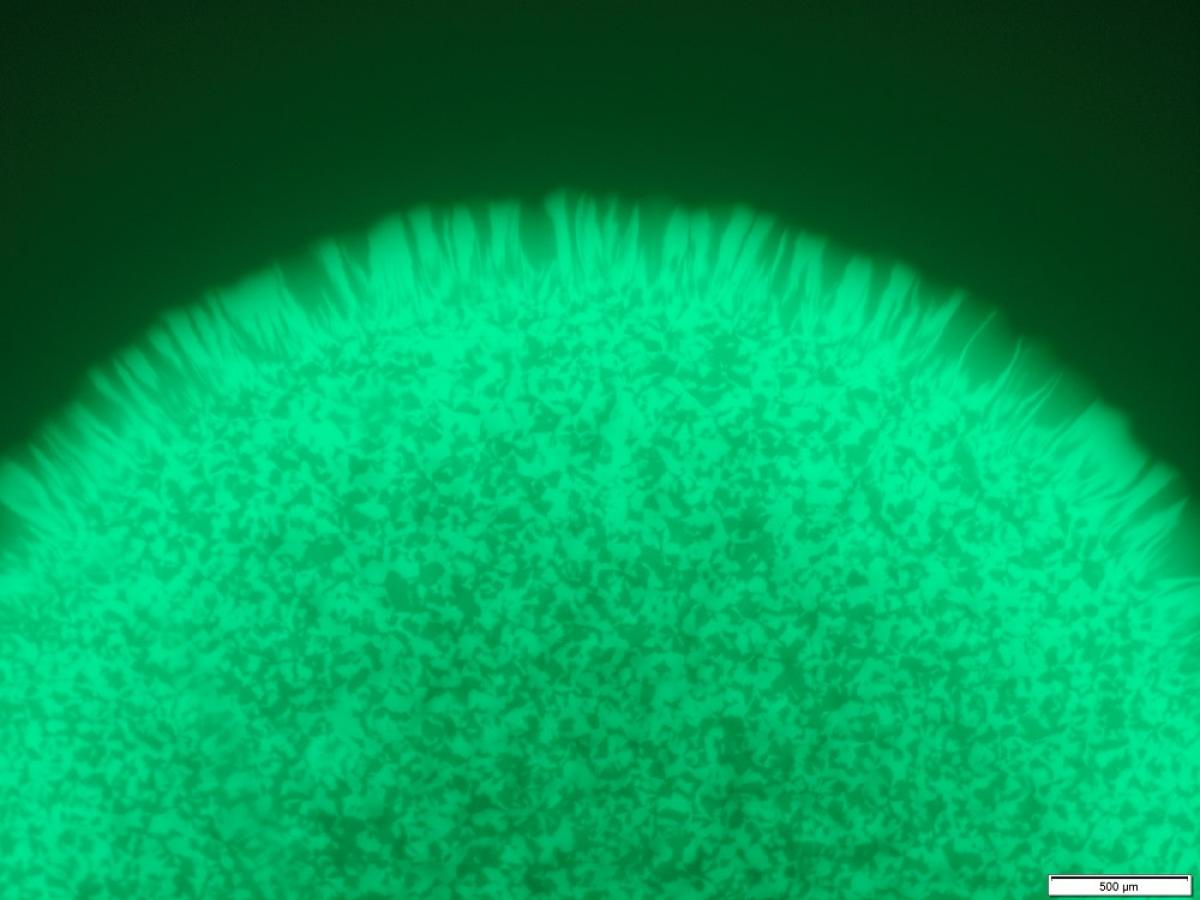
Close up image of engineered bacteria that have turned green after they have detected tumour DNA. Photo provided by: Associate Professor Susan Woods.
An international team of researchers from Adelaide and the United States has engineered bacteria capable of detecting mutated DNA released from colorectal cancer cells, opening the door to faster disease detection.
Led by Dr Dan Worthley, Associate Professor Susan Woods and Dr Josephine Wright from SAHMRI and the University of Adelaide, in partnership with Professor Jeff Hasty at the University of California San Diego (UCSD), the study was published today in the prestigious journal, Science.
The team engineered bacteria called Acinetobacter baylyi (A. baylyi), which is known for its ability to sample and integrate DNA from its environment. The team leveraged this natural competence to detect the mutated KRAS gene, an important driver of colorectal cancer. Researchers have dubbed this technology ‘CATCH’, which stands for, Cellular Assay of Targeted CRISPR-discriminated Horizontal gene transfer.
“CATCH has the potential to detect bowel cancer early with the aim of preventing more people from dying of this and other cancers,” A/Prof Woods said.
“This study demonstrates how bacteria can be designed to detect specific DNA sequences to diagnose disease in hard-to-reach places.”
“CATCH has the potential to detect bowel cancer early with the aim of preventing more people from dying of this and other cancers.”Associate Professor Susan Woods from SAHMRI and the University of Adelaide
The team tested the functionality of the biosensors and found that the sensor bacteria were 100% accurate in differentiating between preclinical models with and without colorectal cancer.
“We were thrilled to see transfer of DNA from the tumour to the sensor bacteria. This shows that our biosensing system can be used to catch colorectal cancer DNA within a complex ecosystem,” A/Prof Woods said.
Dr Dan Worthley says potential applications of the technology extend beyond cancer.
“In the future we will detect and prevent many diseases, including bowel cancer, with cells, not drugs. We hope that this invention, of life detecting life, will be useful for clinicians, scientists and engineers to help the community wherever and whenever DNA detection is important,” Dr Worthley said.
While further studies are needed before progressing to clinical trials, there are high hopes for the future, with this latest research representing a significant advance in the field of living diagnostics and setting the stage for the timely and accurate delivery of targeted treatments.








